Hey there fellow pet owners! Has your furry friend suddenly stopped chowing down on their meals? If you have a husky, you know how much they love to eat. But, when they suddenly stop, it can be a cause for concern.
Don't worry, in this article we'll dive into some common reasons for why your husky might not be eating and what you can do to help. So, grab a treat for yourself and let's get started!
Discover the Delightful Husky Pug Mix and Enjoy $20 Off with Fi Collar
Dive into the delightful world of the Husky Pug Mix, a unique blend of the Siberian Husky and the Pug, known affectionately as the "Hug." If you're intrigued by this charming hybrid, it's crucial to ensure they're well-cared for, happy, and safe. That's where the Fi Dog Collar comes into play, offering a cutting-edge solution for tracking and managing your furry friend's activities and whereabouts.
Use the promo code HUSKY20 to enjoy $20 off on your Fi Dog Collar purchase at TryFi.com. This innovative collar not only provides GPS tracking but also features a sophisticated geofence system through the Fi app, ensuring you're always informed if your adventurous Hug decides to explore beyond the boundaries. Equip your Husky Pug Mix with Fi Dog Collar and enjoy peace of mind, knowing that you can keep an eye on their adventures and ensure their safety at all times. Whether at home or on the go, the Fi Dog Collar is your ally in keeping your cherished pet secure and connected.
6 Reasons Why Your Husky Isn’t Eating
In order to find out why your pup has a lack of appetite, you should familiarize yourself with some common causes. However, as a note, this is not meant to replace any veterinary guidance. In fact, you should take your dog to the vet if you believe they are sick, have not eaten in over 24 hours, or if you have any further concerns.
With that known, let’s go ahead and dive into the article. Here are 6 reasons why your husky may not be eating as much, if at all.
Disagreeing With Their Food
Just like us, dogs can get tired of eating the same thing every day. If your husky has been eating the same food for a long time, they may start to lose interest. This can also occur if they are not feeling well, or if their food has become stale.
To prevent this, try rotating their diet by incorporating different types of food and flavors, such as wet food or a different brand of dry food. When introducing a new food, it's important to do so gradually to avoid upsetting their digestive system.
Additionally, always check that the new food is nutritionally balanced and appropriate for your dog's age, size, and activity level. If you're unsure about what to feed your husky, consult with a veterinarian for personalized recommendations.
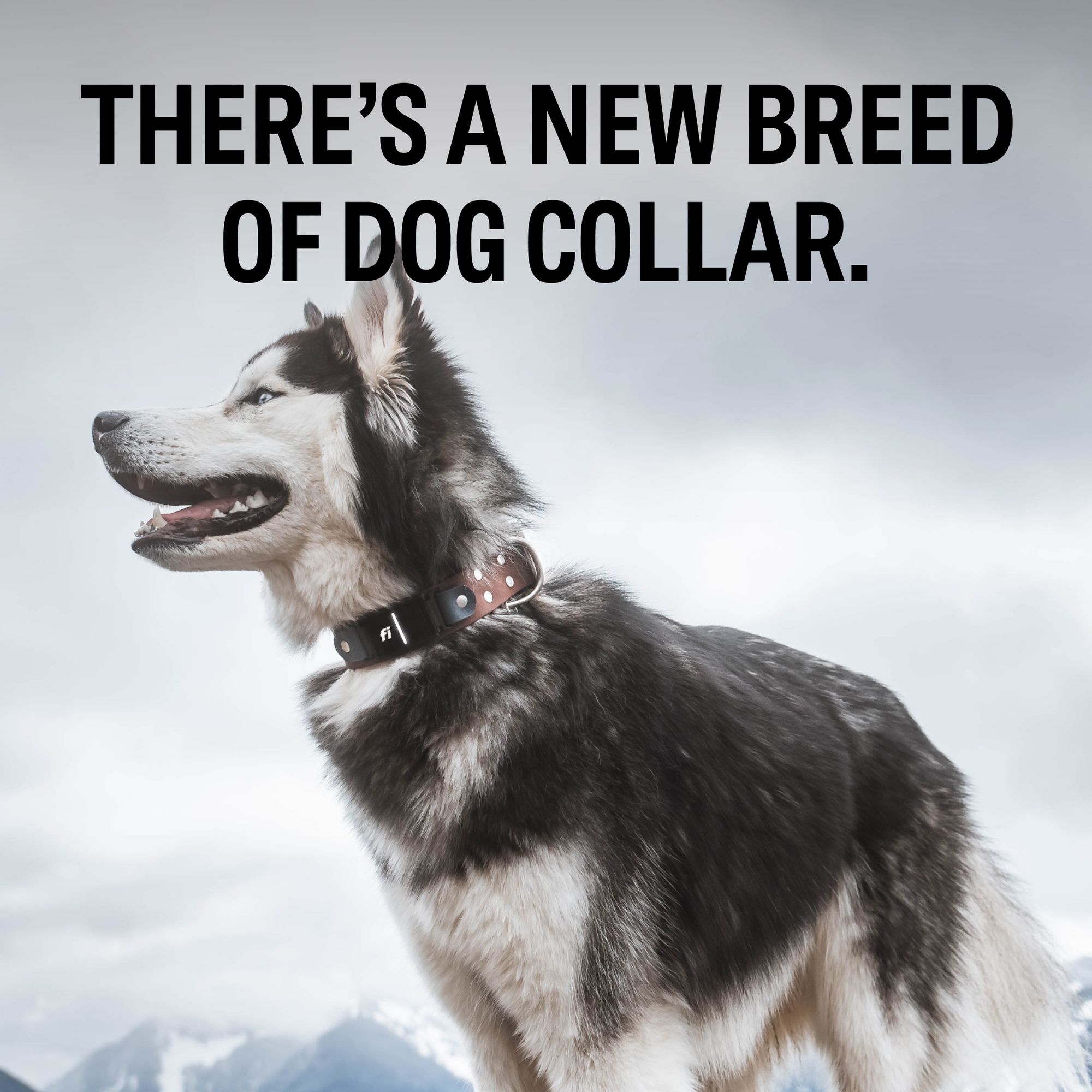
Lack of Exercise
Regular exercise is essential for a healthy and happy husky. If they are not getting enough physical activity, it can lead to a lack of appetite and a decrease in energy levels. In addition to providing physical stimulation, exercise also helps to release endorphins that can improve their mood and overall well-being.
Make sure to include a combination of physical and mental stimulation in your husky's exercise routine. For example, you could take them for a brisk walk, play interactive games like hide-and-seek, or sign them up for agility training classes. Remember, each dog is unique and may require a different amount of exercise, so consult with your veterinarian for personalized recommendations.
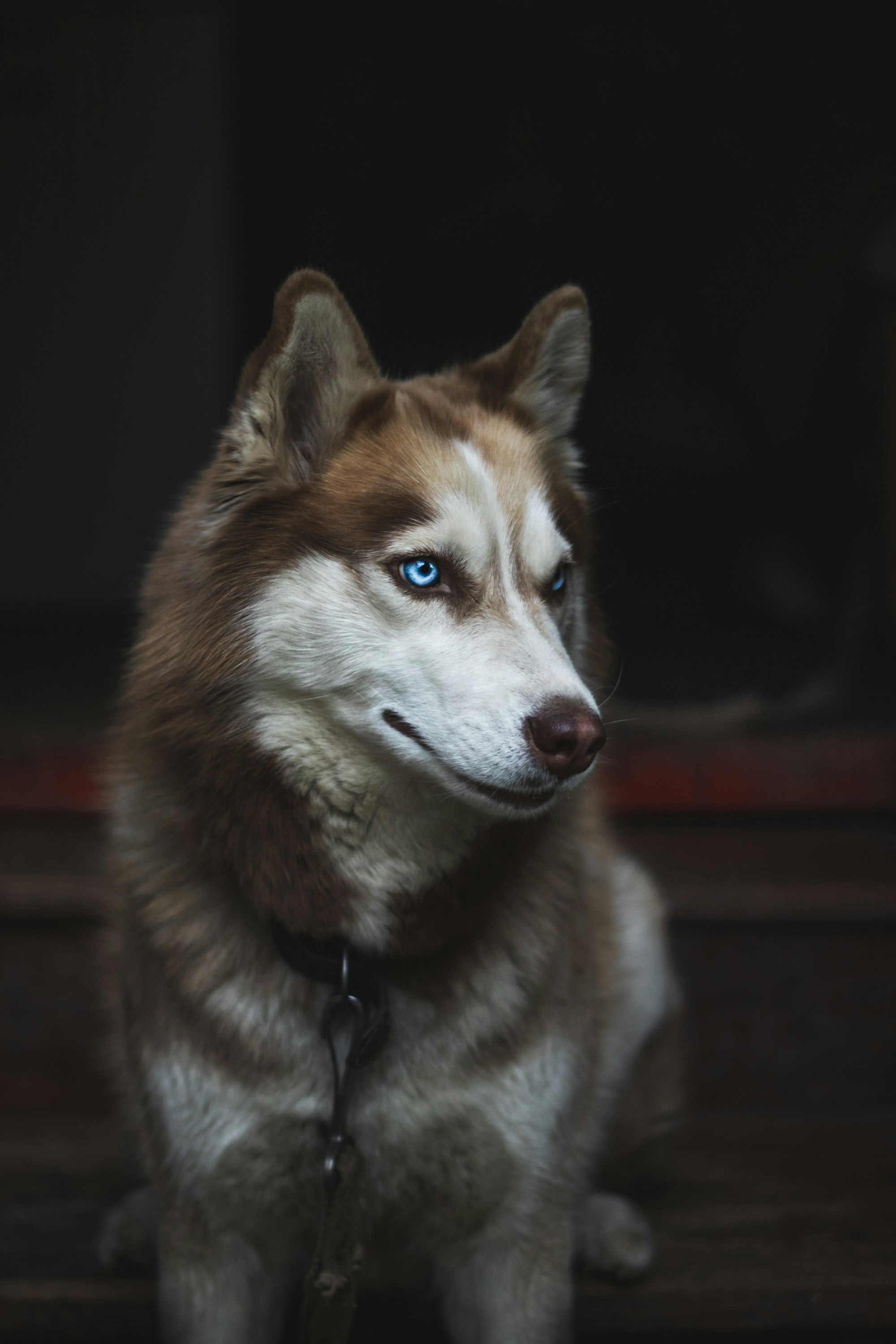
Lack of a Daily Feeding Routine
A consistent feeding routine can provide a sense of security and comfort for your husky. If meal times are inconsistent or unpredictable, it can lead to a decreased appetite and digestive issues. To establish a daily feeding routine, try to feed your husky at the same time every day, and stick to it as much as possible.
This can help regulate their hunger and digestion, and prevent them from becoming overly hungry or full. Additionally, you could consider using interactive feeders, such as puzzle feeders, to provide mental stimulation and keep them engaged during mealtime. If you're planning to change your husky's feeding routine, it's important to do so gradually to avoid upsetting their digestive system.
If you're still having trouble with your husky's appetite, consult with a veterinarian for further advice.
Not Comfortable In Their Environment
A change in environment or a new stressor can cause a loss of appetite in your husky. This can include anything from a new family member, a move to a new home, or a loud noise that scared them. To help your husky feel more comfortable in their environment, make sure their surroundings are safe and secure, and provide plenty of love and attention. You could also try using pheromone sprays, diffusers, or calming supplements to help reduce stress.
Bored of the Food
Just like us, dogs can get tired of eating the same thing every day. If your husky has been eating the same food for a long time, they may start to lose interest. To prevent this, try rotating their diet by incorporating different types of food and flavors, such as wet food or a different brand of dry food. When introducing a new food, it's important to do so gradually to avoid upsetting their digestive system. Additionally, always check that the new food is nutritionally balanced and appropriate for your dog's age, size, and activity level.
Underlying Health Issues
Your husky not eating could also be due to an underlying health issue. Some common health problems that can affect a dog's appetite include:
Dental problems
Dogs with dental problems, such as toothaches or gum disease, may experience discomfort when eating and could lose their appetite.
Gastrointestinal issues
Digestive problems, such as nausea, vomiting, and diarrhea, can make it difficult for a dog to eat.
Infections
Bacterial or viral infections can cause a loss of appetite in dogs.
Chronic diseases
Dogs with chronic diseases, such as kidney disease or liver disease, may have a decreased appetite as a result of their condition.
If you suspect that your husky may have an underlying health issue, it's important to take them to the vet for a proper diagnosis and treatment plan. In some cases, medications or dietary changes may be necessary to help them regain their appetite.
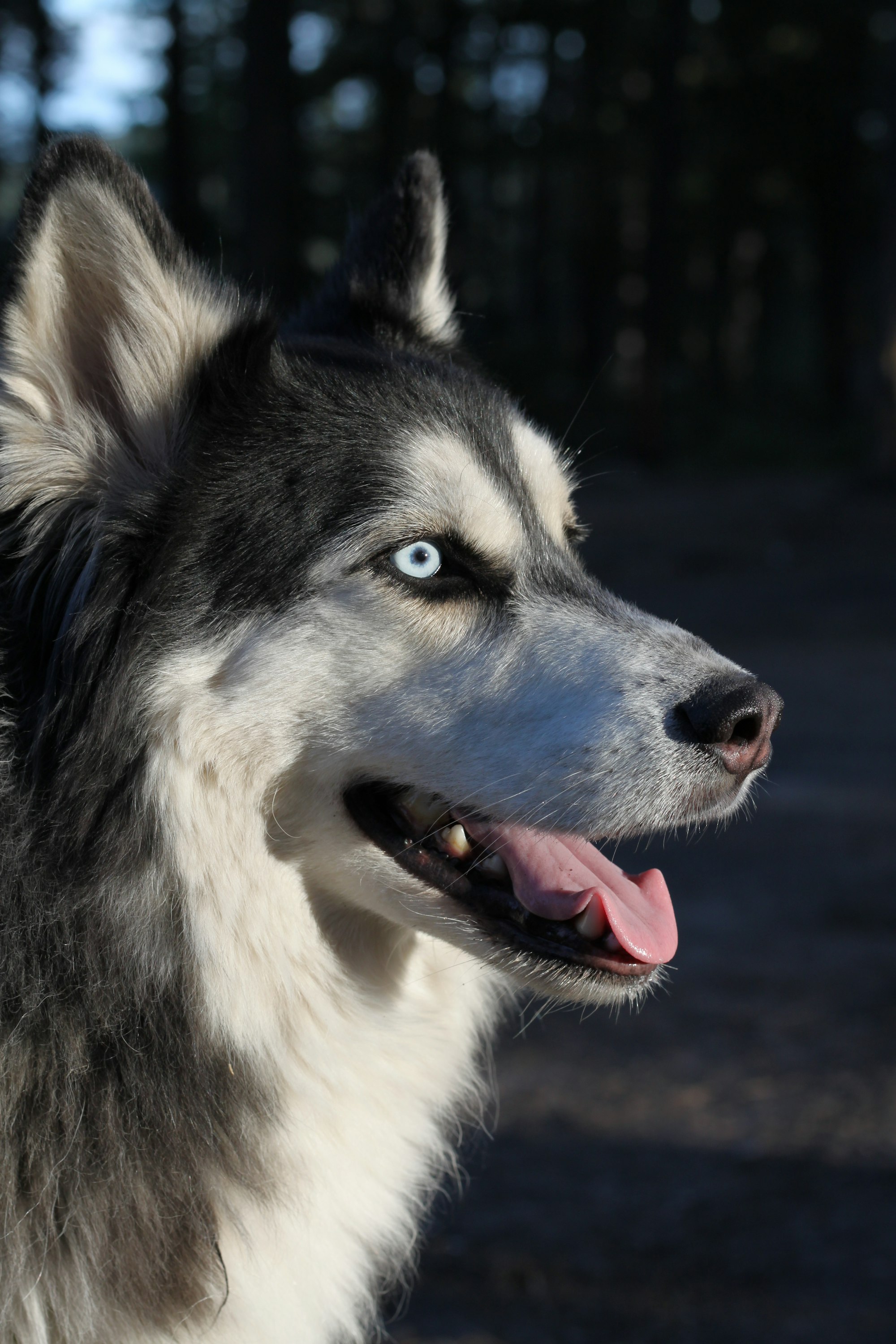
Are Huskies Picky Eaters?
Yes, huskies can be picky eaters. Like all dogs, huskies have their own preferences and tastes, and they may not like certain types of food or flavors. Some huskies may prefer wet food over dry food, while others may prefer certain brands or ingredients.
Additionally, huskies have a strong prey drive and may be more inclined to eat food that has a strong odor or flavor. To keep your husky interested in their food, try rotating their diet and incorporating different types of food and flavors.
5 Ways To Encourage Your Husky To Start Eating
If your husky is not eating, it can be a cause for concern. Fortunately, there are several ways to encourage your furry friend to start eating again.
Eliminate Common Allergens
One possible reason why your husky is not eating may be due to an allergy or intolerance to certain ingredients in their food. Common food allergens for dogs include beef, chicken, dairy, wheat, soy, and corn. These allergens can cause digestive upset, skin irritation, and other symptoms that can lead to a decreased appetite.
If you suspect that your husky has a food allergy, it's important to work with your veterinarian to identify the allergen and eliminate it from their diet. Your veterinarian may recommend an elimination diet, which involves feeding your husky a limited ingredient diet that does not contain any of the common allergens.
It's also important to keep in mind that some dogs may be allergic to other substances, such as flea bites, environmental allergens (like pollen or dust mites), or certain medications. To determine if your husky has an allergy, your veterinarian may recommend blood or skin tests.
Change the Protein
Another way to encourage your husky to start eating again is to change the protein source in their food. If your husky is not eating due to boredom or dislike of their food, switching to a different type of protein can help to reignite their appetite. Some popular alternatives to traditional protein sources like beef and chicken include fish, duck, turkey, and salmon.
Fish is a great option as it is high in omega-3 fatty acids, which can help to improve skin and coat health, as well as reduce inflammation. Duck and turkey are also good options, as they are often well-tolerated and provide a high-quality source of protein.
Salmon is another popular protein source that many dogs enjoy. Not only is it a tasty alternative, but it is also a great source of essential fatty acids, which can help to improve joint health, reduce inflammation, and promote overall health and well-being.
When switching to a new protein source, it's important to do so gradually to avoid upsetting your husky's digestive system. You can start by mixing a small amount of the new protein into their current food and gradually increasing the amount over several days.
It's also important to ensure that the new food you are feeding your husky is nutritionally balanced and appropriate for their age, size, and activity level. If you're unsure about what to feed your husky, consult with a veterinarian for personalized recommendations.
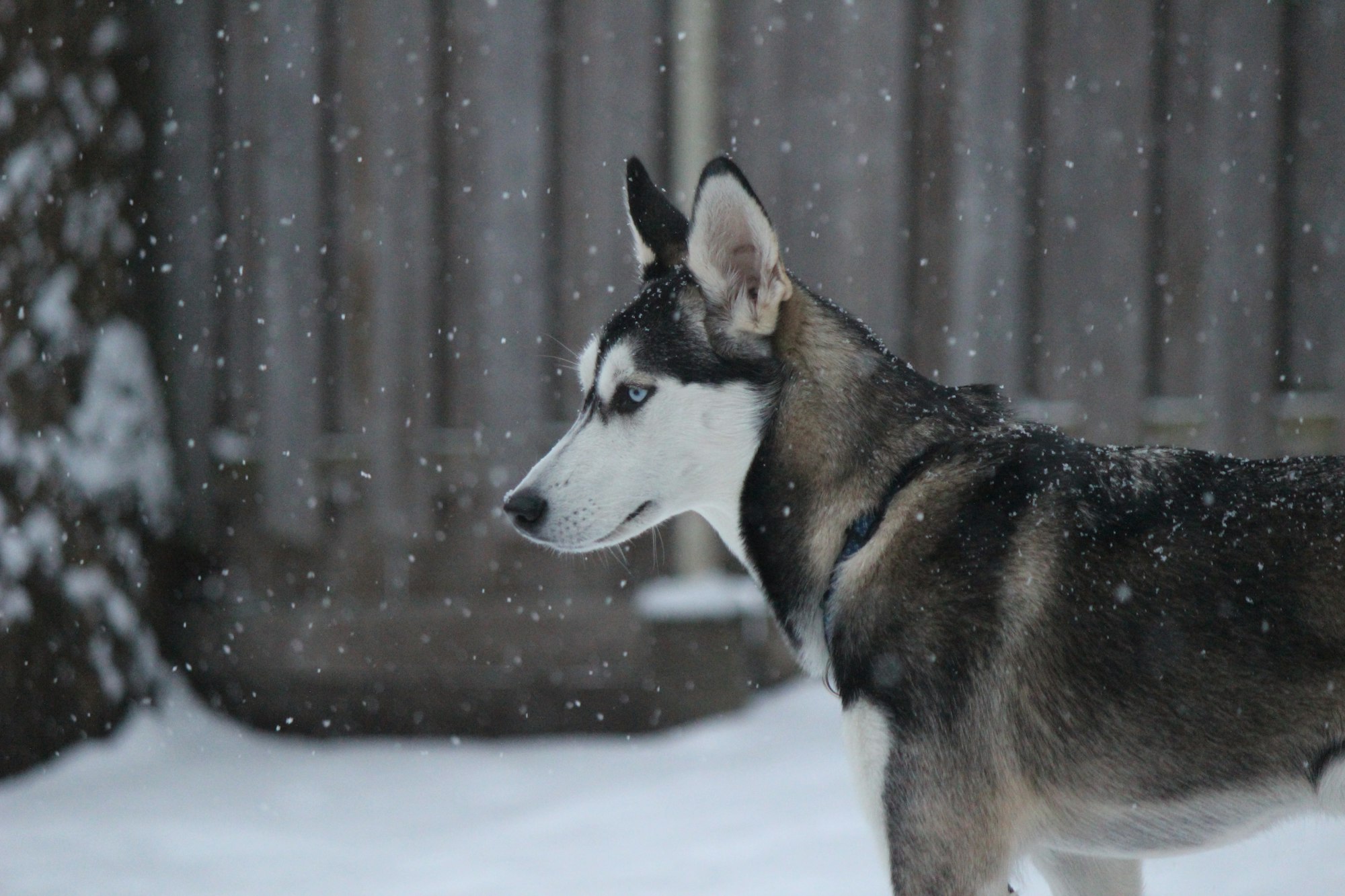
Add in Extra Healthy Flavor to Their Food
Another way to encourage your husky to start eating again is by adding extra healthy flavors to their food. There are many natural and nutritious ingredients that can help to make their food more appealing and enticing.
Some popular options include:
- Fresh or canned pumpkin: This is a great source of fiber and can help to settle upset stomachs.
- Broth or bouillon: Adding a small amount of broth or bouillon to your husky's food can make it more flavorful and enticing. You can use chicken, beef, or vegetable broth.
- Fresh or dried herbs: Herbs like parsley, basil, and rosemary can be added to your husky's food to add extra flavor and nutrients.
- Garlic: While garlic is toxic to cats, it is safe for dogs in small amounts and can help to boost the immune system and improve digestion.
- Human-grade food toppers: There are many human-grade food toppers on the market that are designed to make your dog's food more appealing. Some popular options include grilled chicken, diced beef, and scrambled eggs.
Create Proper Feeding Times and Stick To Them
Creating a consistent feeding routine can help regulate your husky's hunger and digestion. Set regular meal times and stick to them as much as possible.
Avoid free feeding and limit treats to encourage your husky to eat their regular food. Remove distractions during meal times and make eating a positive experience with praise and rewards. A consistent feeding routine can provide comfort and security for your husky.
Increase Your Husky’s Exercise
Note: Only do this if you believe your husky is healthy. Take your husky to the vet before trying to make them exercise for a low appetite.
Regular exercise is essential for a healthy and happy husky. If they have a lack of appetite, increased physical activity can help boost their energy levels and stimulate their appetite. However, only do this if you believe your husky is healthy.
Include a combination of physical and mental stimulation in your husky's exercise routine. This can be achieved through activities such as brisk walks, playing interactive games, and agility training classes.
Each dog is unique and may require a different amount of exercise, so make sure to customize the routine based on your husky's needs and abilities. Regular exercise can also help release endorphins and improve your husky's mood and overall well-being.
Consult with a veterinarian before starting a new exercise routine, especially if your husky is experiencing other symptoms or has not been eating for a long time.
How Long Can a Husky Go Without Eating?
A husky can go for about 3-5 days without eating, but it is not recommended to let them go without eating for this long. If your husky is not eating for more than 24 hours, it is important to take them to the vet for a check-up.
Consider Switching To Human-Grade Dog Food
Human-grade dog food is made from high-quality, human-edible ingredients and is typically free from artificial preservatives and chemicals. This type of food can be a great option for dogs with a lack of appetite, as it provides a more natural and healthier alternative to traditional dog food.
When switching to human-grade dog food, it's important to do so gradually to avoid upsetting their digestive system. Make sure to choose a food that is nutritionally balanced and appropriate for your dog's age, size, and activity level. You can also consult with a veterinarian for personalized recommendations on which human-grade dog food to choose.
Do Huskies Eat Less in Summer?
Yes, huskies can eat less in the summer months due to a few factors. The warmer weather can cause a decrease in appetite, as the heat can make it uncomfortable for them to eat. Additionally, during the summer, huskies may be more active and require less food to maintain their energy levels.
It's also important to note that some huskies may be more susceptible to dehydration during the summer, which can also lead to a decrease in appetite. Make sure to provide plenty of fresh water for your husky and keep an eye on their hydration levels.
If your husky's appetite has significantly decreased and they have not eaten in over 24 hours, it's important to take them to the vet to rule out any underlying health issues. In the meantime, try incorporating some of the tips mentioned in this article to encourage them to eat.
What Foods Can Huskies Not Eat?
Huskies, like all dogs, have specific dietary needs and should not eat certain foods. Here is a list of common foods that huskies should avoid:
- Chocolate - contains theobromine, which can be toxic to dogs
- Grapes and Raisins - can cause kidney failure
- Onions and Garlic - can cause anemia and damage to the red blood cells
- Avocados - contain persin, which can cause vomiting and diarrhea
- Nuts - specifically, macadamia nuts can cause vomiting, high temperature, and tremors
- Alcohol - even a small amount can cause serious health problems
- Bones - can splinter and cause digestive blockages or injury to the digestive tract
- Fatty Foods - can cause pancreatitis, which is inflammation of the pancreas
It's important to keep these foods away from your husky and to always supervise them when eating. If you have any concerns about what to feed your husky, it's best to consult with a veterinarian for personalized recommendations.
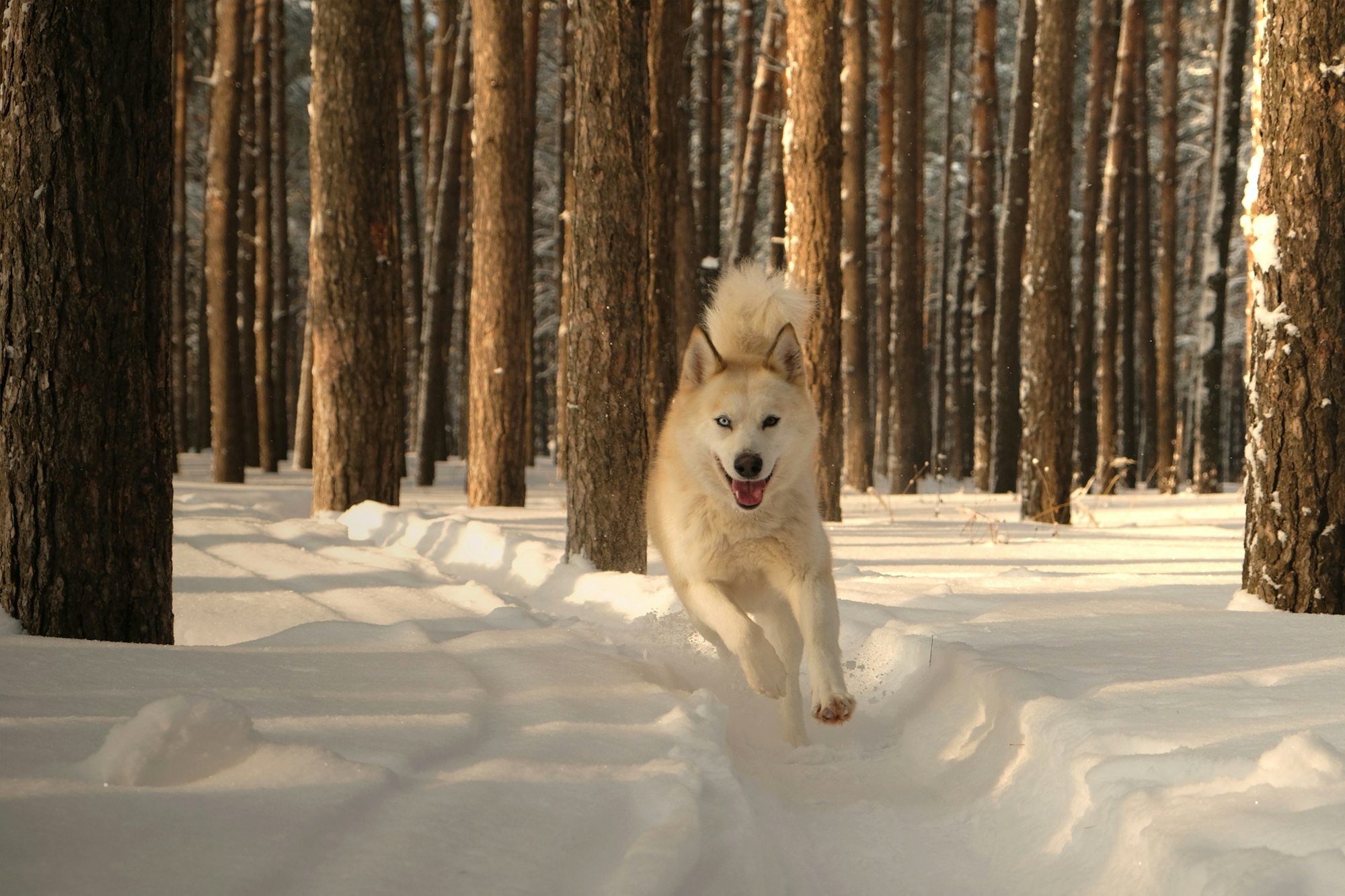
The Bottom Line: Husky Appetites
In conclusion, if your husky is not eating, it is important to identify the root cause of the problem. Some common reasons for a lack of appetite include disagreeing with their food, a lack of exercise, a lack of a daily feeding routine, underlying health issues, or boredom with their food.
To encourage your husky to start eating again, you can eliminate common allergens from their diet, change the protein source to fish, duck, turkey, or salmon, add in extra healthy flavor to their food, create proper feeding times and stick to them, increase their exercise, or consider switching to human-grade dog food.
It's always best to consult with a veterinarian for personalized advice and to ensure that your husky is healthy.
Note: If your husky is not eating, it should be considered a medical emergency. If they are showing other signs, such as lethargy, vomiting, or diarrhea, it is essential to seek professional help right away. Depending on the situation, the causes could range from a digestive upset to injury or a more serious health condition. This article mainly covers non-medical causes of poor appetite in huskies, so do not hesitate to speak to your veterinarian if you are concerned about your husky’s health.
For more helpful articles about pet-parenting tips, check out the Off Leash blog at TryFi.com.
Want to know more about TryFi.com? The Fi Dog Collar is a GPS tracking collar that not only keeps track of your dog’s location, activity levels, and sleep patterns, but it also alerts you if your dog escapes your backyard. This is the fastest way to find your dog after an escape. Try the Fi Dog Collar today!






